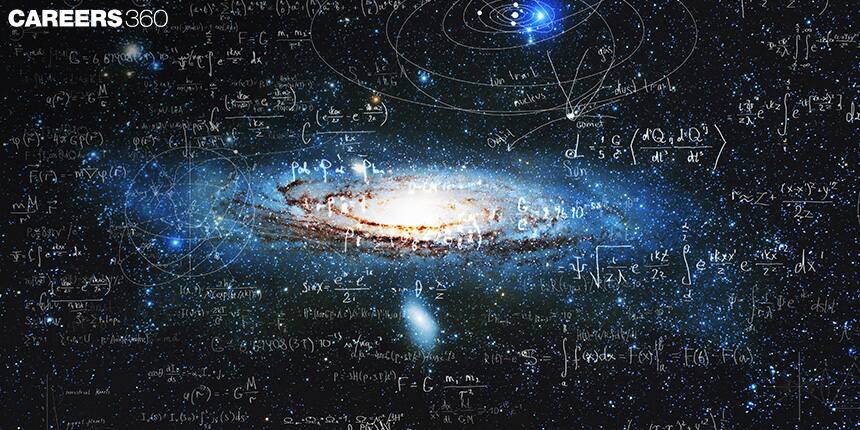Tips For National Junior Science Exam: Class 9 Chapter On Gravitation

National Standard Examination(NSE) is conducted every year for different subjects: Astronomy, Physics, Chemistry, Biology And Junior Science. Through NSE exam scholarships are awarded for top students and it is one of the steps to qualify for olympiads.
Here the discussion on how to prepare gravitation for the NSEJS. The chapter has concepts of gravitational force, acceleration due to gravity, pressure on a liquid and archimedes principle. Let us see the tips to prepare these topics for the NSEJS exam.
Tips To Prepare NSEJS For The Chapter Gravitation
Study all the concepts of NCERT Class 9 chapter Gravitation
Solve Problems from NCERT and NCERT exemplar
Practice previous year NSEJS question paper. This part is important to understand the style of the question. Once a question is understood it is easy to solve.
Complete all the topics from NSEJS syllabus of Gravitation.
Do more problems on pressure inside a liquid and Archimedes principle as questions from these concepts are repeatedly asked.
Attend NSEJS mock tests provided by different coaching institutes.
Also read | NSEJS Physics Paper: Analysis, Reference Materials And Tips
Important Formulas
The following formulas will be helpful to solve NSEJS questions on gravitation.
Gravitational force between two masses separated by a distance r is given by

Value of gravitational constant G is
![]()
F=mg

Here M is the mass of earth and R is the radius of earth. On the surface of earth g is approximated as 9.81m/s2
Also Read | How To Prepare Electricity For National Junior Science Exam
Variation Of g With Height
If the body is now raised to a height h above the earth's surface, its weight mg is


Gravitational acceleration at a very small height h is-
![]()
Pressure
P=F/A, unit = Pa, pascal
1 bar = 105 Pa
Pascal's Law
If the gravity effect is neglected then the pressure at a point in a fluid at rest is the same in all directions.
Variation of pressure in a liquid with height
P = ρgh
ρ is the density of the liquid
h is the height from the surface of liquid
Archimedes Principle
Loss of weight=weight of displaced liquid
NSEJS Practice Questions
Practising previous year questions is important to get a good score in any exam. Also the pattern of questions and important topics can be analysed using previous year papers
Q- 1- A submarine S1 is parked at a depth of 200 m in an ocean on earth. Assume oceans exist on Mars. At about what depth a submarine S2 has to be parked in an ocean on Mars so that S2 will experience the same pressure as that of S1? Accelerationdue to gravity on Mars is 3.7 m/s2.(Assume that sea water density on Earth and Mars is same 1.03 x 103Kg/m3) (IOQJS 2021)
Q-2- Gravitational collapse is the contraction of an astronomical object under its own gravity. This draws the matter inwards towards the centre of gravity.Neutron star is an example of the collapsed core of a giant star. A certain neutron star of radius 10 km is of mass 1.5 M.The acceleration due to gravity on the surface of the neutron star is nearly (IOQJS Part I 2020)
(a)2.0 × 108m/s2 (b) 2.0 × 1012m/s2 (c) 2.6 × 1016m/s2 (d) 2.6 × 1020 m/s2
Q-3- The tympanic membrane (ear drum) is a very delicate component of the human ear. Typically, its diameter is 1 cm. The maximum force the ear can withstand is 2.5 N. In case a diver has to enter seawater of density 1.05 X 103kg/m3 without any protective gear, the maximum safe depth for the diver to go into water is about(IOQJS Part 1 2020)
(a)12 m (b) 9 m (c) 3 m (d) 1.5 m
Q-4- Apples dropping from apple trees were observed by many people before Newton. But why they fall, was explained by Isaac Newton postulating the law of universal gravitation. Which of the following statements best describes the situation? (NSEJS 2020)
(a) The force of gravity acts only on the apple
(b) The apple is attracted towards the surface of the earth
(c) Both earth and apple experience the same force of attraction towards each other
(d) Apple falls due to Earth’s gravity hence only and (c) is absurd
Also Read | Previous Years Paper Analysis For NSEP
Q-5 Consider the motion of a small spherical steel body of mass m, falling freely through a long column of a fluid that opposes its motion with a force proportional to its speed. Initially the body moves down fast, but after some time attains a constant velocity known as terminal velocity. If weight mg, opposing force (Fv) and buoyant force (Fb) act on the body, then the correct equation relating these forces, after the terminal velocity is reached, is: (NSEJS 2020)
(a)mg + Fv = Fb (b) mg = Fv - Fb (c) mg = Fv + Fb (d) none
Q- 6 A block of wood floats on water with ⅜ th of its volume above water. It is now made to float on a salt solution of relative density 1.12. The fraction of its volume that remains above the salt solution now, is nearly(NSEJS 2019)
(a) 0.33 (b) 0.44 (c) 0.67 (d) 0.56
NSEJS Reference Materials To Study Gravitation
NSEJS previous year question papers
NCERT Class 9 book chapter Gravitation
NCERT Exemplar problem of the chapter Gravitation
Other than the above mentioned NSEJS study materials students can also practise NSEJS mock test available on different online platforms.
Applications for Admissions are open.
As per latest syllabus. Physics formulas, equations, & laws of class 11 & 12th chapters
JEE Main Important Chemistry formulas
Get nowAs per latest syllabus. Chemistry formulas, equations, & laws of class 11 & 12th chapters
JEE Main high scoring chapters and topics
Get nowAs per latest 2024 syllabus. Study 40% syllabus and score upto 100% marks in JEE
JEE Main Important Mathematics Formulas
Get nowAs per latest syllabus. Maths formulas, equations, & theorems of class 11 & 12th chapters
